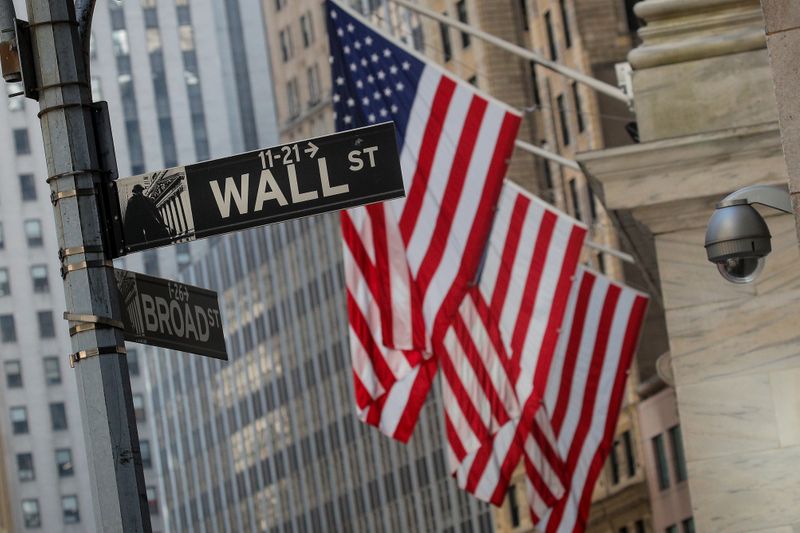Select Language

The S&P 500 closed just below the flatline Thursday following the recent rout as dip-buying in tech was kept in check by fragile sentiment amid ongoing concerns over high U.S. debt levels.
At 4:00 p.m. ET (20:00 GMT), the Dow Jones Industrial Average fell 1 point, or 0%, and the S&P 500 index gained 0.03%, while the NASDAQ Composite added 0.3%.
The main averages slumped on Wednesday, with the blue chip Dow Jones Industrial Average falling over 800 points, weighed down by a spike in U.S. Treasury yields.
Tech leads market bounce off lows
Dip-buying in tech stocks, led by Alphabet (NASDAQ:GOOGL), helped the broader market steady, with the latter adding to this weeks gains following its developer conference earlier this week.
The tech giant used the event to defend its Search product, which is under threat from newer generative AI rivals.
Elsewhere in tech, Snowflake (NYSE:SNOW) stock surged after the cloud-based data storage company raised its fiscal 2026 forecast for product revenue, betting on strong demand for its data analytics services as enterprises prioritize artificial intelligence spending.
House passes tax and spending bill
U.S. President Donald Trump’s tax bill narrowly passed the House on Thursday morning, overcoming days of political wrangling between Republicans in control of the lower chamber of Congress.
The measure passed by a narrow 215-214 margin, with all Democrats opposing the bill.
The bill now moves to the Senate, where some lawmakers are pushing for revisions, with a vote on approval expected by August.
The U.S. House Rules Committee on late Wednesday approved President Donald Trump’s expansive tax and spending bill after a nearly 22-hour session, media reports showed.
Along with the extension of 2017 tax cuts, the legislation would slash taxes charged on tips and car loans, while boosting spending on defense and border security. Reductions to key food and health programs for low-income Americans are also included in the bill.
Critics have expressed concerns over potential cuts to social programs and increased national debt. Nonpartisan analysts have estimated that the reductions could add between $3 trillion to $5 trillion to the country’s $36.2 trillion debt pile over the next decade.
Jobless claims point to still-solid labor market
Economic concerns, exacerbated by the trade turmoil over the last couple of months, have also weighed on stock markets.
The number of Americans filing new applications for unemployment benefits dropped last week, suggesting the economy maintained a steady pace of job growth in May.
Initial claims for state unemployment benefits fell 2,000 to a seasonally adjusted 227,000 for the week ended May 17, the Labor Department said on Thursday.
S&P Global’s composite purchasing managers’ index cooled to 50.6 last month, down from 53.5 in March and only slightly above the 50-point level denoting expansion.
The index’s tracker of the manufacturing sector is seen slowing to 49.9 in May, while the services gauge is expected to edge up slightly to 51.0.
Urban Outfitters shines on earnings stage
Urban Outfitters (NASDAQ:URBN) stock soaring following a stronger-than-expected quarterly report - the second straight quarter of strong revenue gains and the third consecutive quarter of accelerating EPS growth.
Analog Devices (NASDAQ:ADI) stock rose after the chipmaker beat expectations for quarterly revenue, driven by upbeat demand for its chips used in the automotive and industrial sectors.
Additionally, Nike (NYSE:NKE) stock rose 2% after the footwear retailer said it is planning to raise prices of some products from next week and will sell items on Amazon (NASDAQ:AMZN) after six years.
(Peter Nurse, Ambar Warrick contributed to this article.)

